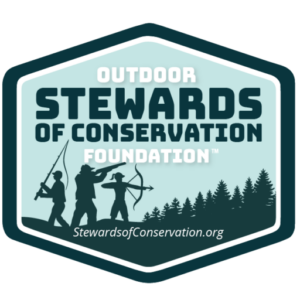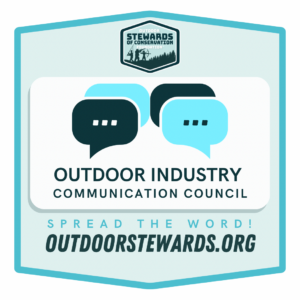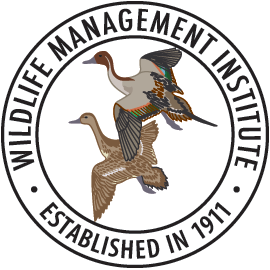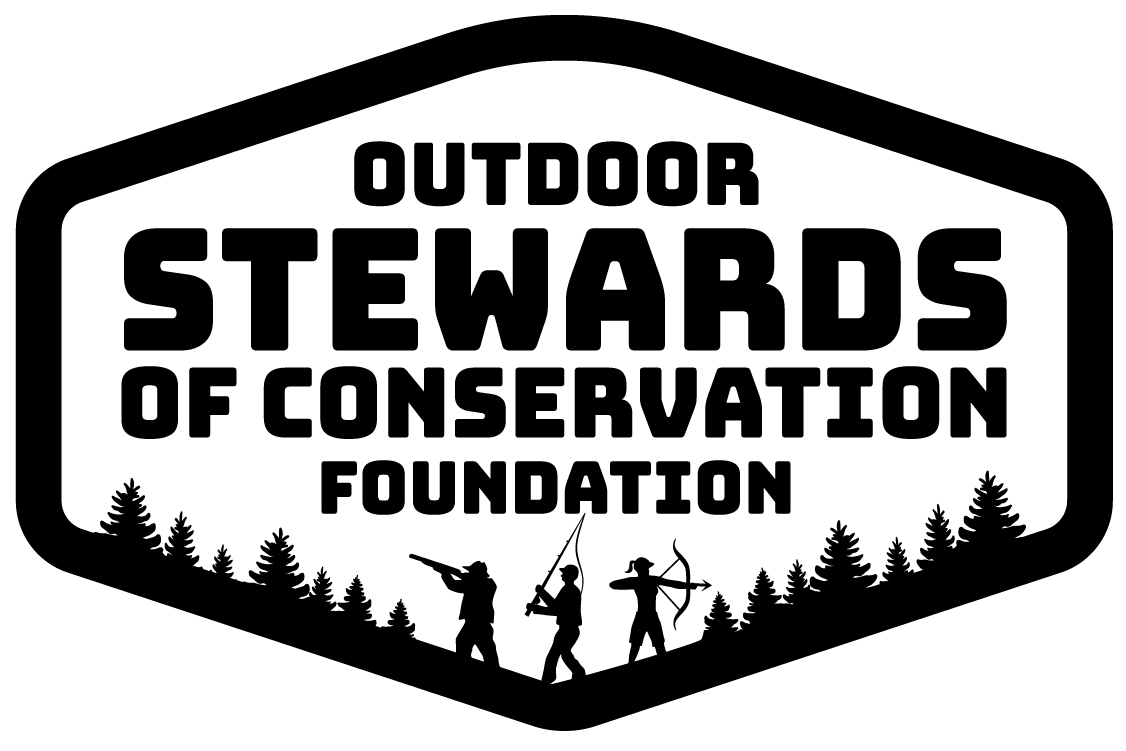


Shareable media promoting conservation from the Outdoor Industry Communication Council (OICC) – see below for more details.
The Joys of Mentoring a New Hunter Extend Well Beyond the Field
In this season of giving, the most enduring gift is a future of hunting and fishing
By Andrew McKean
Gwen and I have almost nothing in common, besides sharing a hometown and a love of words. She’s maybe 20 years younger than I am, tattooed, and has spent most of her life indoors.
But through a number of happy coincidences, we got acquainted, and some months later, in a conversation that was harder than it should have been, she asked awkwardly if she could come along on a hunt. I agreed, also awkwardly because this is a question that grown people don’t often ask one another. But I suggested that she do the hunting, and I’d come along as teacher and guide.
Gwen wanted to start slow, with plenty of time talking about her goals, which included being safe with a firearm, learning as much as she could about mule deer, which we identified as our first quarry, and being confident enough to make a sure killing shot. We practiced dry-firing a rifle, then target-practicing at a range, and then finding gear in my collection that both fit and suited her.
On a glorious October afternoon, Gwen stalked inside 100 yards of a mule deer buck, made a perfect shot, and served a rump roast from that buck to her family at Thanksgiving. That was two years ago. Last year Gwen added waterfowl hunting to her skill set, and this year she wants to learn upland hunting.
A friendship has grown out of these experiences, along with a commitment to share gear, knowledge, and enthusiasm. I can’t say which of us has benefitted most from the arrangement. Gwen has earned some of the knowledge that I’ve accumulated over a lifetime as a hunter, but I’ve gained the fresh perspective and brimming enthusiasm of a beginning hunter. Gwen has gained a freezer full of wonderful wild meat. I’ve gained a hunting buddy.
This is the very essence of mentoring, or actively passing along the traditions, gear, and accumulated knowledge that most veteran hunters often forget we possess. Gwen is what you might call an apprentice, a beginning hunter who has been intimidated by the high bar to participate in an activity that requires specialized gear, knowledge, and access.
You may have heard these terms, mentor and apprentice, in the national conversation over how to reverse the trend of declining hunting participation. Efforts to address declining hunter numbers are organized under the term R3, for Recruitment of new hunters, Retention of existing hunters, and Reactivation of lapsed hunters.
Most veteran hunters learned their skills and passion at a young age from a family member. But as our nation grows more urban and less connected to rural traditions, fewer young Americans hunt, and the infrastructure of wildlife management, in which hunters’ license dollars and gear purchases fund state fish-and-game agencies, is reliant on robust participation. Fewer hunters means fewer advocates for healthy wildlife and wildlife habitat.
That’s why R3, and particularly hunter recruitment, or the process in which veteran hunters mentor apprentice hunters, is so important to the future of hunting. Most state agencies and many conservation groups have recruitment programs, and a quick internet search will turn up plenty of opportunities to either apprentice or mentor near you.
But until you make a connection with another hunter—either a rank beginner or a seasoned veteran—these efforts can seem a little empty. In the rush to create R3 programs, many organizations forget is that recruitment isn’t a slogan, or a goal, or a numeric objective. Recruitment is a relationship, one that’s hard to begin and difficult to maintain, but that is as durable as boot leather once it’s committed to by both parties.
Administrators of R3 programs also forget that the real payoff of these relationships isn’t a hunting license, or a deer in the freezer, but rather a bond between people who share impactful experiences and allow themselves to be emotionally available and a little bit vulnerable. That relationship is hard to scale up, since it’s based on individual connection.
Last month, sitting behind my rifle on a berm, waiting for whitetails to feed out in a field, Gwen turned to me and said, “I can’t believe you’re willing to invest all this time with me.” I turned toward her and was just about to say, “I feel the same way about you.”
But I kept my words, and watched as a handsome buck appeared. Gwen got on the gun as I ranged the deer. I could tell by her shaking that Gwen’s anxiety was rising, but as I watched she deployed all the lessons she had so capably absorbed. Within an hour, a little bloody from the field dressing and impressed with Gwen’s patience, poise, and marksmanship, I was describing my favorite cuts of venison and how to cook them.
On our drive back to town, Gwen offered that she might be ready to make herself available to an apprentice next season. It occurred to me that is how you build hunters, one at a time, each eager to pay the experience forward.
Andrew McKean is the Hunting and Conservation Editor for Outdoor Life and a regular contributor to a number of publications. He lives in eastern Montana.
About the Outdoor Industry Communication Council (OICC):
Formed around the commitment to educate all Americans about the origins of conservation funding in America, the Outdoor Industry Communication Council (OICC) is managed by Outdoor Stewards of Conservation Foundation (OSCF) and Wildlife Management Institute (WMI). OICC works with outdoor writers to develop informative content that is available to all outdoor organizations and media at no cost. A primary goal of the OICC is to better inform and promote the positive contributions that wildlife agencies, industry manufacturers, NGO’s and end users such as hunters, anglers, trappers and target shooters make to conservation. Outdoor organizations interested in conservation are welcome to use any OICC content to expand the reach of messages created by the OICC. To become a member of the Outdoor Industry Communication Council, contact Jim Curcuruto of OSCF (203) 450-7202 jim@stewardsofconservation.org or Jon Gassett of WMI at (502) 330-9025 jgassett@wildlifemgt.org. There are no costs involved to become a member of the OICC.
Members may utilize OICC materials as they see fit with no restrictions. For additional information visit https://www.outdoorstewards.org/outdoor-industry-communication-council-oicc/
This project is funded by the Multistate Conservation Grant Program (F23AP00404), a program supported with funds from the Wildlife and Sport Fish Restoration Program and jointly managed by the Association of Fish and Wildlife Agencies and the U.S. Fish and Wildlife Service.
